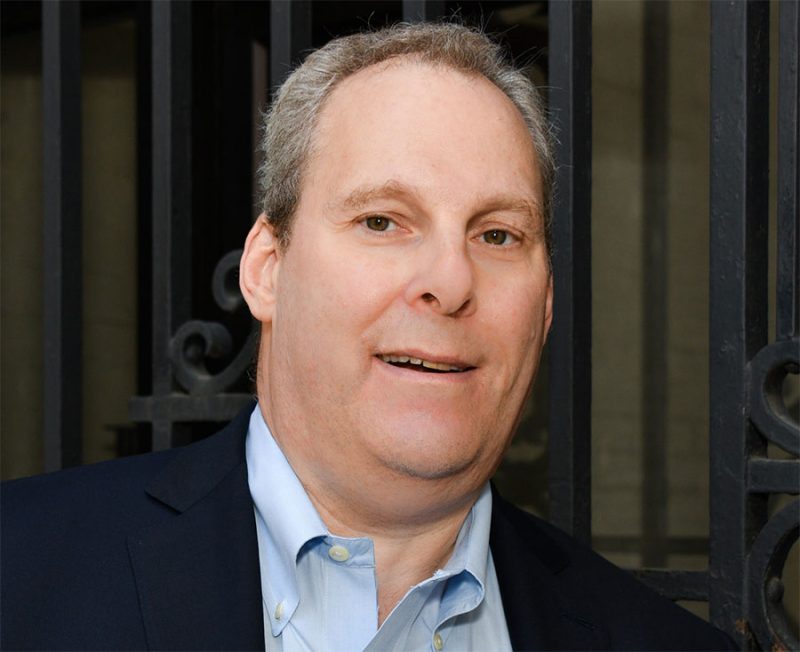Did you know that the personal data tech giants accumulate on users could be worth as much as $20,000 per person? Regardless of individual Internet users being worth nearly $20,000 each, the only people seeing that money are the tech giants. One man is trying to stop the monopoly of the tech giants and that man’s name is Erik Rind.
In October 2018, Rind founded ImagineBC as a media platform that is more than just a content provider. Rind designed ImagineBC’s service to share the equity created by the platform with all community members. It is a revolutionary service that aims to end the monopoly of the tech giants such as Amazon, Facebook, Twitter, Google and others.
Totalprestige Magazine recently sat down with Rind to find out more about ImagineBC.
Erik, can you start off by telling us about ImagineBC and how it delivers a range of content services to clients?
We designed ImagineBC to be a media platform that is more than just serving up content. Instead, we designed our service to share the equity created by the platform with all members of our community. To help put this in context, imagine Amazon Prime had a separate carousel on their user interface that had advertisements, surveys, and other types of marketing content. Each time a Prime user watched an ad or completed a survey, they would earn a fair share of the money paid by the advertiser to Prime. The user could then spend the money they earned from watching these advertisements on purchasing individual content from Prime, put it towards their monthly subscription for Prime, donate it to a social cause or transfer it to their bank account so that they could spend it on rent, groceries, or other physical type goods. This is the ImagineBC model. We support advertising but rather than having ads mixed into the content on our platform, our users voluntarily watch advertisements to earn cash, while the content on our platform remains completely ad free.
How did ImagineBC get started and what inspired its creation?
My “aha moment” for ImagineBC is actually a combination of two events. While I was in the process of learning about blockchain technology and how that technology can be used to create solutions outside the world of crypto currency, my first grandchild was born. Life has cycles, first you see the world only through your own eyes, then if you are lucky enough, like I have been, you find an incredible partner to share your life with and you start seeing the world through a joint perspective. When kids come into the picture your perspective shifts once again and you start to look at the world your children will mature into. Finally, a grandchild enters your life and perspective shifts again. Well, when I started to imagine the world my grandson might inherit, it scared the daylights out of me. So, rather than just sitting around and griping, I decided to try and do something about it by reinventing my Don Quixote story from fighting the giants of HCM (ADP, Paychex) to fighting the giants of tech (Google, Facebook).
On the ImagineBC website, it states a person’s personal data is worth around $20,000 a year to media companies. Can you explain how our personal data is worth so much? Can the average person not sell their own data and make the money?
Our website has a video of Jaron Lanier, a respected futurist, saying that an individual’s data could be worth as much as $20,000 a year. Although there is no exact way just yet to determine the value of an individual’s data there are examples of transactions in the marketplace that put a value on data. A few years ago, 23andMe sold all the DNA data they had collected from their customers to GlaxcoSmithKline for $400m in a one-time non-exclusive arrangement. If you divided that $400m by the number of clients 23andMe had at the time, the value of that data came out to roughly $1,000 per individual. That’s just one transaction from a few years ago. Now think about the 5g world we are about to enter. Where the number of sensors available to collect data on us is going to multiply by an incredible factor. To quote from the famous song by the Police, with 5g technology companies will be able to monitor “Every Breath You Take, Every Move You Make”. The real-time nature of the collection of data on us means that each of us will always be creating new data that will have value to one or more parties. When you think of it this way, you can begin to understand that, with the proper technology in place to allow individuals to share in the value of their data, how Mr. Lanier got to his estimate.
How does blockchain technology come into the equation and enable you to deliver a unique service to clients?
Our business model allows our community members to be in control of their personal data and make decisions on how that data is used. Without blockchain technology, we simply could not deliver on this promise to our users. Without blockchain technology, we would need to collect and store all our user’s personal information in a centralized database. A database that would certainly become the target of hackers. The distributed architecture that is the DNA of blockchain technology allows us instead, to let our user’s control their data through a personal wallet, where access to that data requires a key that only they know.
Prior to beginning ImagineBC, what was your background in content creation and production? Can you give us an overview of your career?
Other than the fact that my father was a Madison Avenue advertising executive, not quite Don Draper but like him, I have no background in content creation or production. My professional career began with me working as a management consultant for Price Waterhouse in the 80s. In the 90s and through to 2018. I was an entrepreneur working in the world of human capital management (HCM) technology. In the end, though I consider myself a problem solver and as discussed earlier, I saw that the tech giant’s near monopolistic control over media was a major problem that needed to be solved, so I pivoted my attention away from HCM and entered the world of data privacy, data monetization and content creation.
What made you follow your entrepreneurial side to start ImagineBC?
I’ve been an entrepreneur for most of my professional career with one successful exit, one failure, one draw and one opportunity (ImagineBC) still yet to be decided. But more than being an entrepreneur, I started ImagineBC because I felt the world needed a company like ImagineBC. I’m too old to care anymore about being a Master of the Universe or in accumulating untold wealth and power. I am far more concerned about the world my grandchildren are destined to inherit. People either believe that our technological future will be “Star Trek” or “Star Wars”. I am firmly in the “Star Wars” camp. Think of the Tech giants as the Empire. I believe that the inevitable deployment of AI/ML driven robotics is going to displace millions of workers. I don’t believe technology will find a way to find new employment for these workers. This is not like the turn of the 20th century where people who worked making horse carriages went to work on the Ford assembly line. How many people does it take to control a fleet of robots? So, we better start figuring out a way to create new forms of income for the people who will be displaced. Universal Basic Income (UBI) is not the answer. UBI really means government paying people but the government is really just us the taxpayer. Where is the government going to get the money from? The tech giants, I don’t think so. Instead, we need to find a way to fairly compensate individuals for the use of their data, the use of their time and the use of their intellectual property. That’s why I created a platform like ImagineBC.
Erik, you have over 30 years of experience in advanced technology systems. How much has the industry grown since you entered the industry more than three decades ago?
That’s a really interesting question. The easiest answer to that is that technology now affects every aspect of individual and business life. When I started there were still so many manual processes. It’s funny to think back to my first assignment working at Price Waterhouse. I was on a team of 20 consultants developing hand drawn and written specifications for a new civilian payroll system for the Navy. When we delivered the final specification it was in three-ring binders that would fill an entire room. Today that project would of course be almost fully automated. Technology has given us the tools to work far more efficiently but despite this and maybe because we are human we still seem to be able to make mistakes. We just make them sooner.
How difficult has it been to navigate the COVID-19 pandemic as a young business?
Early during the pandemic I would have answered this question by saying “not difficult at all”. ImagineBC was already a distributed virtual business. We were using Zoom before most people knew the product even existed. However, as we come and go from surge to surge we have certainly started to feel the pandemic’s effects. Most importantly it has significantly interfered with our ability to grow our community. It would be nice to think that we could grow 100% digitally, but a solution like ours requires a more personal touch to ignite the flames of growth.
You are a member of Forbes Tech Council, Rolling Stone Culture Council and the Radical Exchange. How did these appointments occur and how significant is it to be a part of these organizations as an entrepreneur?
My involvement with the Forbes Tech Council and the Rolling Stone Culture Council was spurred by the need to amplify our corporate voice and mission-based philosophy here at ImagineBC. By using those well recognized channels to contribute to the growing discourse around business, especially on the tech side, an alignment just seemed to make good sense.
Our involvement with RadicalExchange followed a slightly different path. Earlier in this interview we talked about Jaron Lanier. I first became aware of Jaron when I watched his short New York Times video series discussing personal data monetization. After listening to Jaron, I became focused on contacting him. That journey led us to discover Matt Prewitt and Radical Exchange. Although ImagineBC is a for profit business we believe wholeheartedly in the efforts of Radical Exchange as they relate to personal data rights. The significance of being connected to these organizations is that they provide additional platforms by which we can spread the ImagineBC message.
What is the future of content and content production in your opinion?
My opinion is that it will unfortunately be controlled almost entirely by the tech giants. My hope and dream is that content production will become far more democratic. I would like to see the gatekeepers of content removed and instead the creators of content be able to have their projects funded directly by their audiences and in turn their audiences be able to share in the economic success of projects.
Erik, what is a day in your life like?
Woken up by my wife at 4 am. She works longer hours than I do. Stay in bed until trying to go back to sleep until around 6 am. Start reviewing the headlines looking for things happening in our space. This usually takes around 90 minutes. Shower and off to the office. It’s nice to be back in the office again. I don’t like working from home. From around 8 am to early evening, I’m attacking my to-do list for the day. I typically have three to four calls, a number of design meetings and a bunch of writing to do.
I don’t go home until I have knocked off everything on my list I had the power to complete. This means I might get home at 4 pm or 8 pm depending on the type of day. If I’m lucky to finish early, I head to my golf club and pound golf balls at the driving range or to my squash club for some exercise. One good thing about the pandemic is it helped me rediscover my love of golf. Other than eating dinner, in the evenings, I like to read or just chill watching some mindless content.
Just before falling asleep. I mentally prepare my to-do list for the next day. Placing every task in its appropriate compartment.
What is something most people don’t know about you?
That’s a funny question since most people don’t know me at all. But since I need to provide an answer, let’s say that I would much prefer being a writer than a technologist and entrepreneur. I’m enthralled by the creative process. Writing code was the closest I could ever get.
What makes you smile?
My grandchildren.
What scares you?
Our future being run by the likes of Amazon, Google, Facebook and Twitter.
If you had the power to change just one thing in the world, what would it be?
Break up the tech giants.
For more information on Erik Rind and ImagineBC, please visit the company’s official website.











